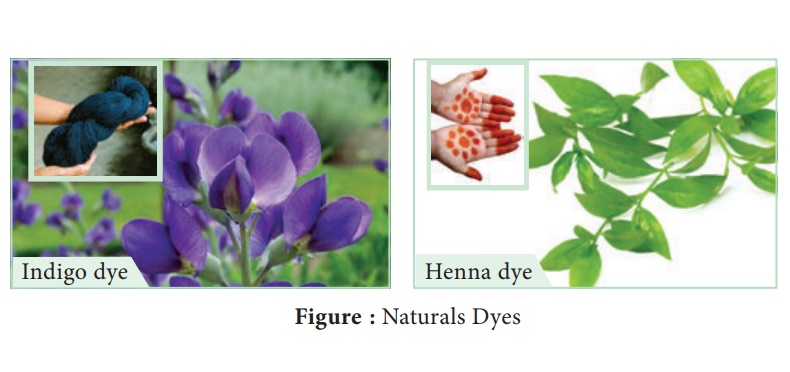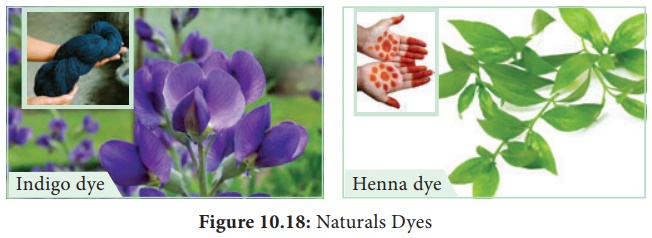Uses, Origin and Area of cultivation, Botanical name - Food plants - Dyes | 12th Botany : Chapter 10 : Economically Useful Plants and Entrepreneurial Botany
Chapter: 12th Botany : Chapter 10 : Economically Useful Plants and Entrepreneurial Botany
Dyes

Dyes
The ability to perceive colour is a wonderful aspect of human eyes
and dyes add colour to the goods we use. They have been in use since the
ancient times.
The earliest authentic records of dyeing were found in the tomb
painting of ancient Egypt. Colourings on mummy cements (wrapping) included
saffron and indigo. They can also be seen in rock paintings in India.
Indigo
Botanical name : Indigofera
Family : Fabaceae
Origin and Area of cultivation:
Indigofera tinctoria is native to India.
It was grown in many states in India. Now it is grown limited states mainly in
Tamil Nadu and Andhra Pradesh.
Uses
A brilliant dark blue dye ‘indigo’ was extracted from the leaves
of several species of Indigofera. The people of Asia, especially India have
known the dye for over 4,000 years. It is also used in painting of murals.
Indigofera have long been used in Southern India in temple arts and folk arts,
popularly known as Kalamkari. Indigo used for dyeing and printing cotton, rayon
and wool.
Henna
Botanical name : Lawsonia inermis
Family : Lythraceae
Origin and Area of cultivation:
It is indigenous to North Africa and South-west Asia. It is grown mostly throughout India, especially in Gujarat, Madya Pradesh and Rajasthan.
Uses
An orange dye ‘Henna’ is obtained from the leaves and young shoots
of Lawsonia inermis. The principal colouring matter of leaves ‘lacosone”
is harmless and causes no irritation to the skin. This dye has long been used
to dye skin, hair and finger nails. It is used for colouring leather, for the
tails of horses and in hair-dyes.

Related Topics